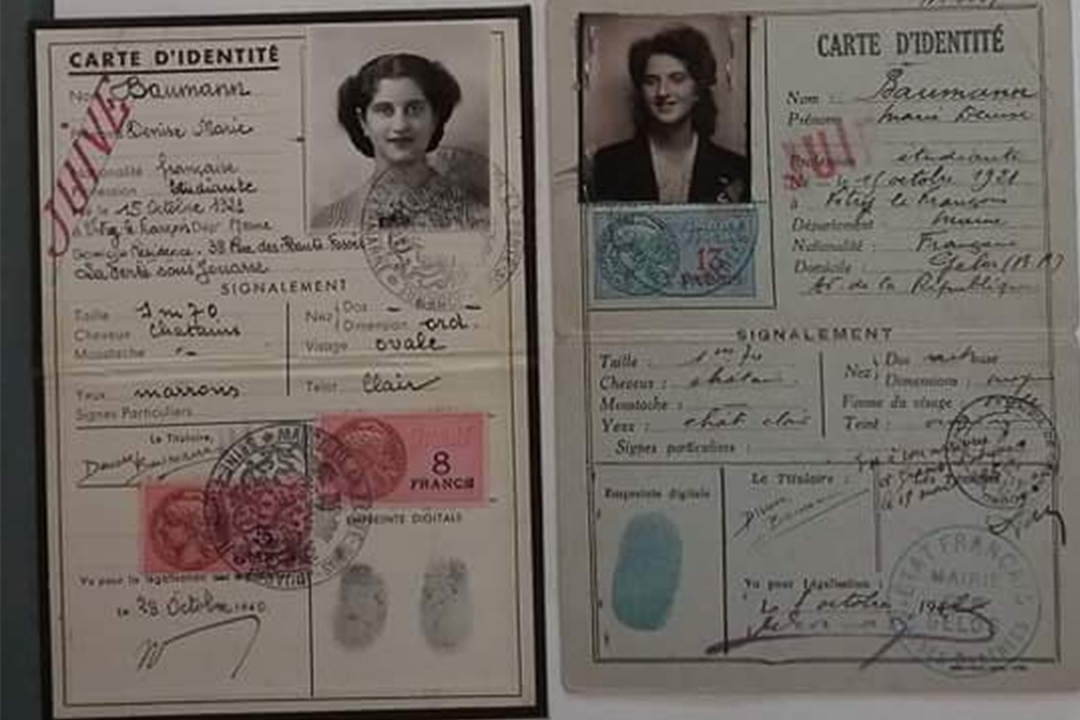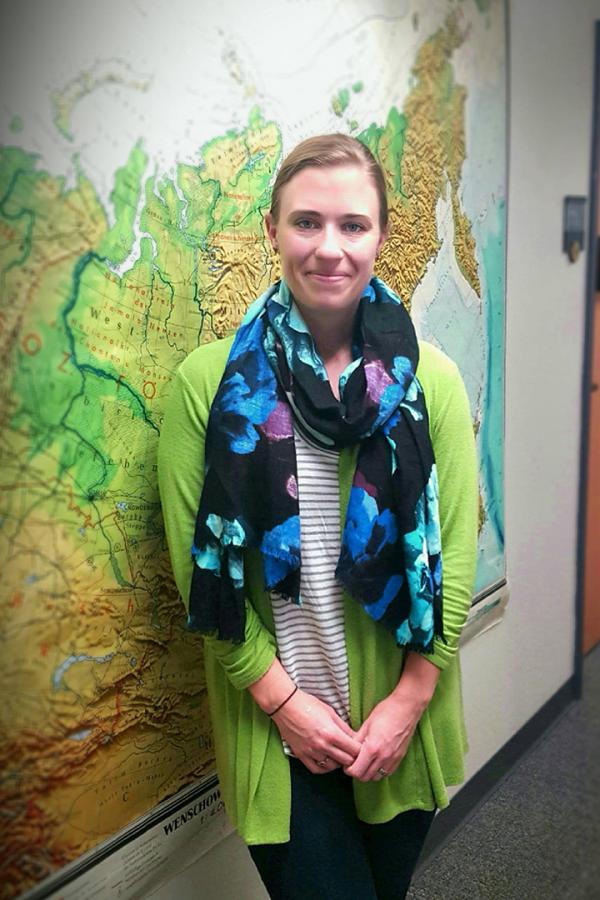History PhD student Ashley Valanzola met Monique Novodorsqui-Deniau in a Paris café. Valanzola was researching the lives of Jewish women in France who survived the Holocaust, and Novodorsqui-Deniau had a story to tell.
As they sipped coffee near the Champs-Élysées, Novodorsqui-Deniau, who is nearing 80, recalled how she was just an infant when her Polish immigrant mother was arrested by the Nazis in Montargis, France, in 1942. She was deported to Auschwitz and never returned. Her father and three sisters were taken to internment camps. Remarkably, all of them survived. Novodorsqui-Deniau herself was spared only when a nanny persuaded soldiers that the crying baby was too troublesome. She spent much of the war in hiding.
Although Novodorsqui-Deniau barely knew her mother, she made sure her story lived on. She erected a memorial plaque in the suburbs of Paris—a common commemorative activity throughout Europe. She also created plaques in honor of several Parisian children killed during the Holocaust. Now a psychologist, she has written two books about the period, including a collection of smuggled letters between her parents and siblings.
The café meeting with Novodorsqui-Deniau helped inspire Valanzola to reshape her research and thesis project. In addition to writing biographical portraits of Holocaust survivors, she expanded her focus to also examine their commemorative efforts and how their experiences altered the trajectory of their lives.
Survival and Activism
Valanzola’s study focuses on six Jewish women in France—people who not only survived the Holocaust but were active in ensuring stories were preserved through plaques, memorial museums, books and other efforts. The women, who include concentration camp survivors and resistance fighters, went on to become political leaders, women’s rights advocates, authors and educators. Two testified at the war crimes trial of Klaus Barbie, including one who described in harrowing detail how the Gestapo chief tortured her when she was 13. Of the six women, all but Novodorsqui-Deniau are now deceased.
“What makes [Valanzola’s] work so important is that it is firmly grounded in the lives of real people,” said Katrin Schultheiss, chair of Columbian College’s Department of History and Valanzola’s faculty advisor. “In stressing these women’s individuality while revealing common threads that run through their work, she grapples with personal memory as a source of history.”
Ashley Valanzola
It was while conducting research on Jewish women in the French Resistance that Valanzola—a U.S. Naval Academy graduate who traveled extensively to Europe during her six-years of naval service—was introduced to France’s extensive Holocaust commemoration culture. In Paris alone, there are more than 1,000 commemorative plaques with many more monuments and memorials outside of the city dedicated to Holocaust victims. The number of plaques and other commemorations reflects the extent of the tragedy—between 1942 and 1944, more than 70,000 French Jews were sent to Nazi death camps and fewer than 2,500 survived.
Among the women Valanzola profiles is Denise Baumann who was 22 when her entire family—parents, sister, husband and three young daughters—were killed at Auschwitz. Baumann was recovering from pneumonia in southwestern France when they were taken. She joined the French Resistance, helping to shelter Jewish children. She later became a psychologist, working with child survivors. Baumann erected a plaque for her family near Paris, published two books of letters from Holocaust victims and sponsored scholarships for survivors.
Among the other survivors that Valanzola is profiling are Denise Siekierski, also a member of the French Resistance, who later worked with Yad Vashem, the Holocaust remembrance organization in Israel; Simone Veil, an Auschwitz survivor who, as president of the Memorial de la Shoah Foundation, spearheaded Holocaust awareness projects; and Sabine Zlatin and Simone Lagrange, both of whom testified at the Barbie trial and founded memorial museums.
“Their commemorative work embedded their experiences within the historical narrative of the war,” Valanzola said. “There are so many stories of courageous Jewish women who have done remarkable things that remind us every day of what happened then and what can still happen now.”
For her profiles, Valanzola combed through archival records—videos, trial transcripts, newspaper clippings, personal letters—at the U.S. Holocaust Memorial Museum in Washington, D.C., and the Memorial de la Shoah in Paris. In addition to meeting Novodorsqui-Deniau, her planned interviews include many of the women’s friends and family, such as Veil’s niece and Siekierski’s Yad Vashem colleagues.
While the women’s commemorations were first intended to honor the memory of murdered loved ones, Valanzola said each was increasingly seen as a response to anti-Semitism and Holocaust denial. With global incidents of anti-Semitic violence rising—Tel Aviv University researchers note that more Jews were killed in racist attacks in 2018 than any year since the survey began in 1989—the efforts of these women are now more important than ever, Valanzola said.
“These women realized that it would be important for people to hear firsthand from Holocaust survivors and to know that their experiences were not unique in history,” she said. “They wanted people to learn from their stories when confronting these same issues years later.”



